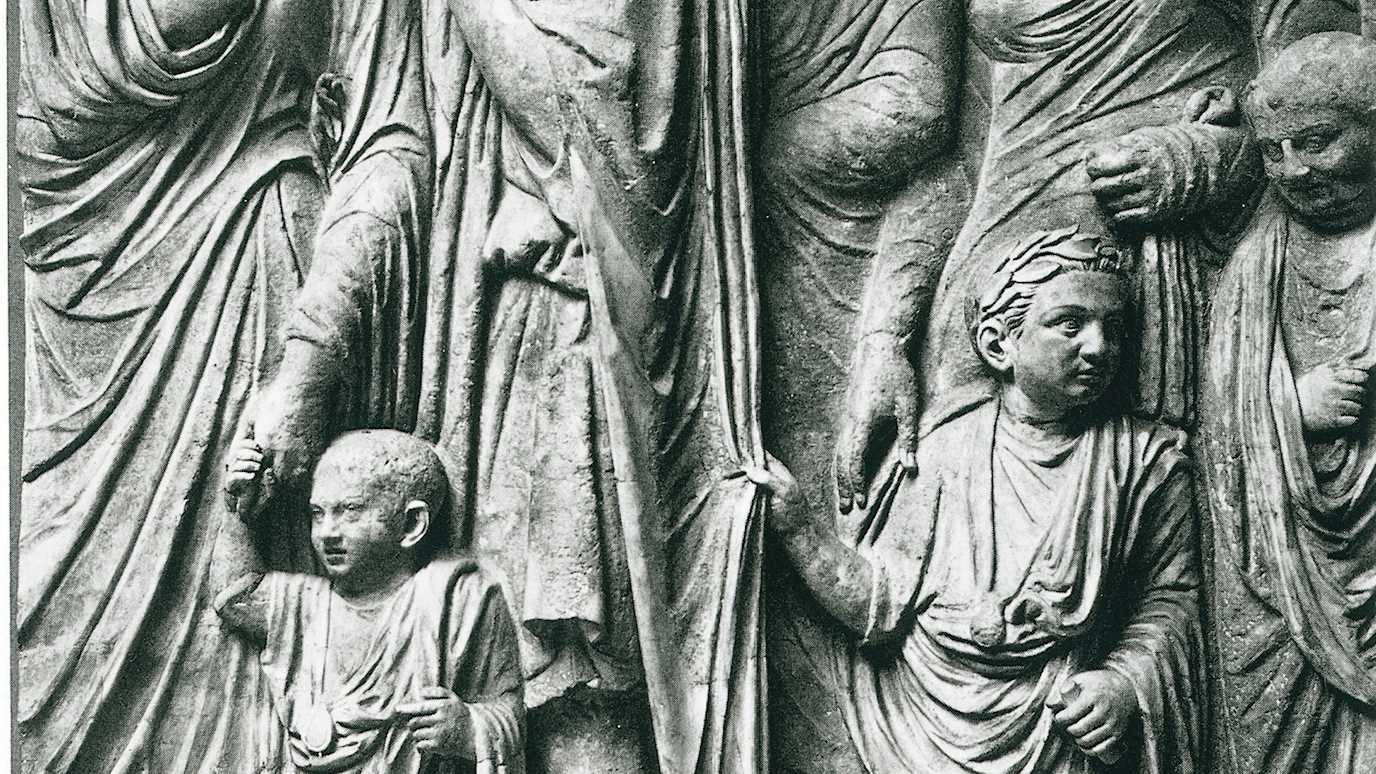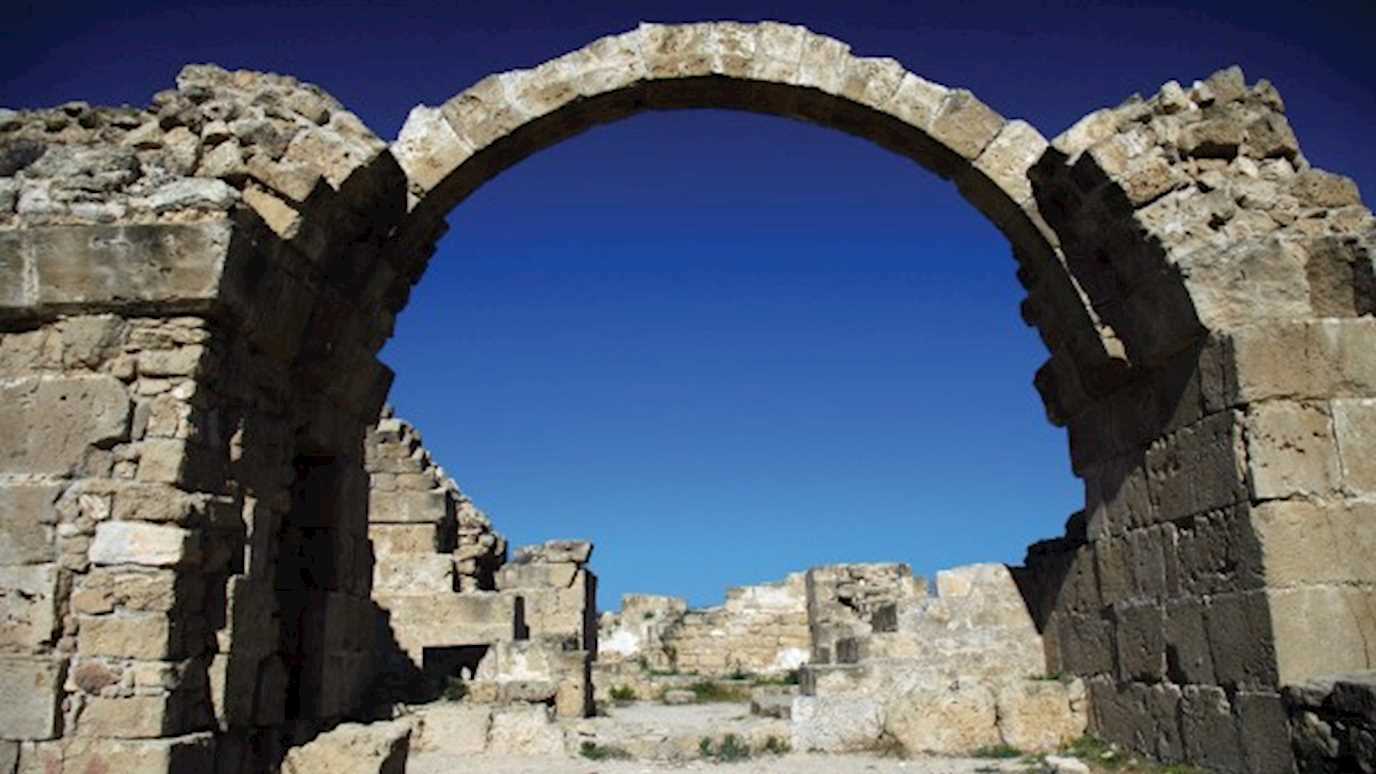Access our range of school resources on video and powerpoint.
Members of our department have recorded some of their most popular talks, or produced PDF versions of PowerPoints and handouts full of information and suggestions for further reading that you can download and use. Find out more by clicking on the names and titles below.
Remember that you can invite our lecturers to come and speak at your school: you'll find the information you need on our Classics school talks page.
Prof. Richard Alston – 'Pliny's Wife'
Roman history
This talk considers how we might understand love and relationships in imperial Rome. It takes as a text case a letter from the Roman senator, Pliny. In the letter, he proclaims his love for his wife. Taken at face value, the letter shows conjugal love between equal partners and can be seen as evidence for a new emphasis on conjugal relations and a new equality between husband and wife. But the story is not so simple. The letter is a literary contrivance in which Pliny shows off his literary talent. When one looks closer this is not a display of equality, but of Pliny and his brilliance. Calpurnia, like Pliny’s freedman, Tiro was subordinate to Pliny’s desires and to Pliny’s literary and sexual games. We conclude by thinking about the age of the couple, suggesting that Pliny was probably 43 when he married Calpurnia and she was 13 or 14. Pliny’s marriage to Calpurnia was not one of love and romance, but of business in which two local families cemented their long-established ties.
You can download a PDF version of his presentation here.
Prof. Richard Alston – 'Germanicus on genocide: nations and territory'
Roman history
This talks starts from a problematic passage in Tacitus, Annales of an invasion of Germany by the Roman general and heir of the emperor, Germanicus. In 14 CE, Germanicus massacred the Marsi, a German tribe. The account is problematic since there is no ethical doubt raised in the text: murdering men at peace and women and children is not seen as wrong. This allows us to think about the nature of rights in Roman and modernity. It also shows a different relationship between the individual, the nation and sovereign power. Looking at nineteenth-century mythologizations of the revolt of Arminius and the massacre of the Varus and his Roman legionaries, we see that territory and landscape are shown as giving birth to the nation Subsequently, the nation seeks its political independence. By contrast, for the Romans, the political entity (Rome and the Emperor) comes first. People are Roman and have rights because of their loyalty to the Emperor. It is only subsequently that the territory is associated with and shaped by the political power of the state. People’s identity depends not on their territories of origin, but on their political loyalties. The Tacitus passage allows us to question some of the fundamentals of modern political life: nations, lands, and citizen rights.
Prof. Richard Alston – 'Imperial sovereignty and the restoration of the Republic'
Roman history
The axis of the Roman world shifted in 28 BCE. Rome had been a Republic since 509 BCE. After the deaths of Antony and Cleopatra, Octavian was predominant. In 28 BCE, he had to take the decisions as to how Rome would be ruled in the years to come. Those decisions gave rise to the Roman imperial monarchy. The problem at the centre of this moment is that Octavian declared both in 28 BCE and at his death in 14 CE that he restored the Republic when we see him as the founder of imperial monarchy. This talk looks at two coin types from 28 BCE. These show the political messages of that year. The coins show Octavian proclaiming his role in restoring Republican freedom, and the laws and rights of the Roman people. Freedom and laws and rights were regarded as fundamental to the Republic. But these coins show that this freedom and these laws and rights depended on the glorious leader. This talk argues that the dependence of the restored Republic on one man, Octavian, and the recognition of the ability of that man to give the people their freedom and laws was fundamentally monarchic. If civil rights depend on the discretion of an individual (or group of individuals), there can be no liberty and no republic. That’s a political lesson both for Roman history and for today.
Dr Efi Spentzou – 'Form speaks: imagery and politics in the Aeneid'
Latin literature
This talk unpicks a few rich lines from Book 10 of the Aeneid before tracing threads to other important passages in Books 8, 3 and 2 to remind us of the intricate webs of interconnected images with which Virgil offers his subtle messages. You can download a PDF version of Dr Spentzou's PowerPoint presentation here.
Dr Efi Spentzou – 'Virgil and the world of the hero'
Latin literature
This talk explores the question of what it means to be a hero in the world of the Aeneid by examining the way in which Aeneas' heroic identity shifts and develops as he journeys from Troy to Rome. You can download a PDF version of Dr Spentzou's PowerPoint presentation here.
Dr Liz Gloyn – 'Latin literature beyond A Level: Roman magic in Seneca's Medea'
Latin literature
This talk takes you beyond what you might have learnt at A Level about tragedy and about the Roman philosopher, playwright and politician, Seneca. It focuses on Seneca's tragedy the Medea: in writing this play, Seneca draws on his Greek predecessors, including Euripides' Medea, but he makes very different choices about how to tell the same story. One of the most remarkable of those choices is to put an act of magic on stage. Dr Gloyn has produced a worksheet based on her talk: it contains discussion of the play, a passage for analysis and some key themes to explore to get you started, as well as some interesting suggestions for further reading.
You can download the worksheet here.
Dr Liz Gloyn – 'Seneca, the Stoics, love and relationships'
Ancient philosophy
This talk focuses on the Roman Stoic philosopher Seneca and his ideas about love and relationships. It begins with some important background information about who Seneca was and about Stoicism, which is the philosophical system to which Seneca ascribed. It is supports the 'Love and relationship' component of the OCR A-Level in Classical Civilisation. Dr Gloyn has created a whole range of resources to support this component, which you can find on our Online resources page and on her blog.
























